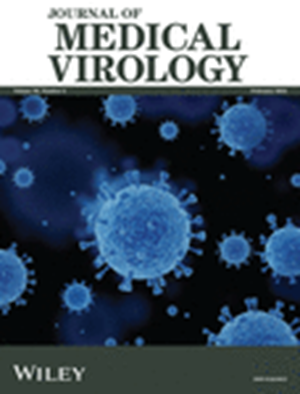Respiratory Syncytial Virus Infection Disrupts Airway Epithelial Barriers via IL-33/ST2/MyD88 Signaling Axis
Abstract
Respiratory syncytial virus (RSV) infection has been associated with disruption of the airway epithelial barrier, potentially increasing the risk of asthma development. However, whether and how RSV and RSV-induced IL-33 contribute to this process are still unclear. In vivo, 7-day-old C57BL/6 mice were infected perinasally with RSV, then viral replication, lung inflammation and barrier integrity were evaluated at various time points postinfection. In vitro, human epithelial cells were infected with RSV in the presence or absence of IL-33, and the expression and localization of apical junction complex proteins (AJC) were assessed by western blot analysis and immunofluorescence staining. The involvement of components of the IL-33/ST2/MyD88 axis was further verified through blockade of endogenous IL-33 signaling and pharmacological inhibition of MyD88. Exposure to RSV infection resulted in impairment of the airway epithelial barrier, as indicated by reduced expression of tight junction proteins (ZO-1, Occludin) and adherents junction protein (E-cadherin) in the lung tissues. These effects on epithelial barrier disruption were significantly attenuated in St2-/- mice compared with wild-type controls. In vitro, the RSV-induced epithelial barrier disruption was exacerbated by topical application of exogenous IL-33, partially through activation of MyD88-mediated NF-κB signaling. Notably, knockdown of St2 by siRNA transfection or pharmacological inhibition of MyD88 partially restored the expression of E-cadherin, ZO-1 and Occludin in RSV-infected epithelial cells. RSV infection triggers robust IL-33 release from airway epithelial cells, leading to disrupted expression of AJC protein via activation of the MyD88-dependent NF-κB signaling pathway. These findings highlight the IL-33/ST2/MyD88 axis as a critical mediator of epithelial barrier dysfunction, which may represent a potential target for therapeutic intervention in RSV-mediated lung diseases.

 求助内容:
求助内容: 应助结果提醒方式:
应助结果提醒方式:


